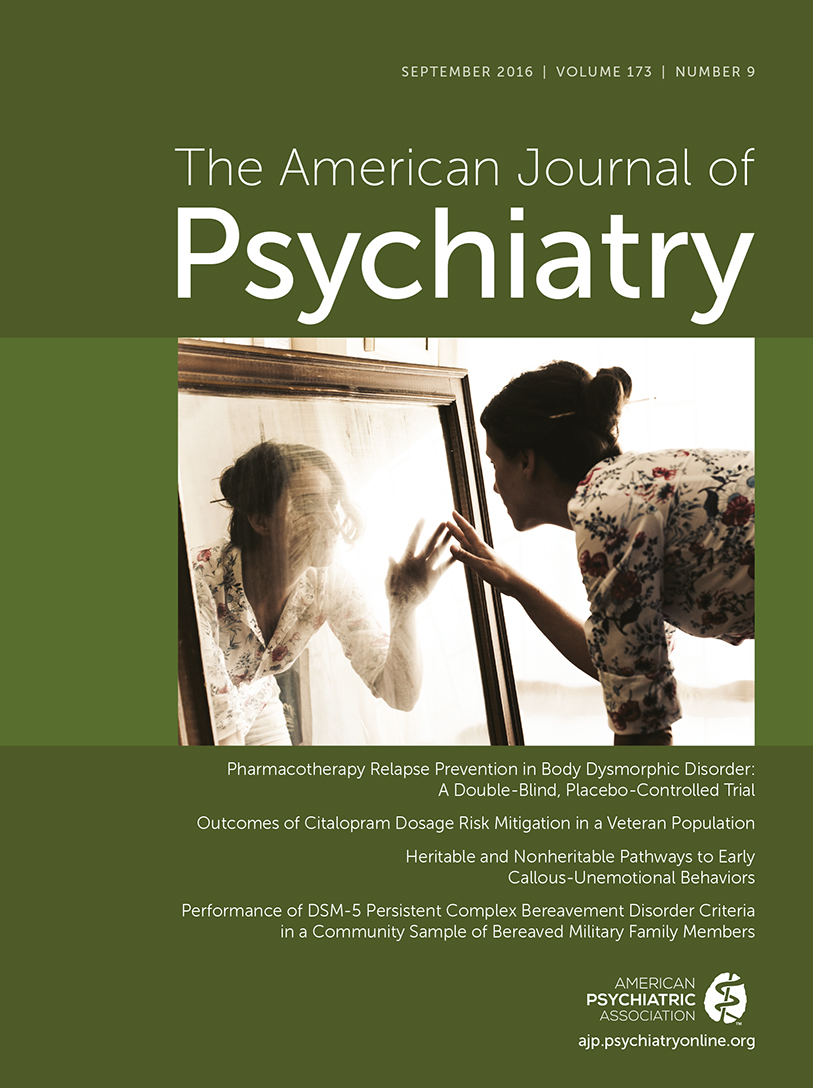Heritable and Nonheritable Pathways to Early Callous-Unemotional Behaviors
Abstract
Objective:
Callous-unemotional behaviors in early childhood signal higher risk for trajectories of antisocial behavior and callous-unemotional traits that culminate in later diagnoses of conduct disorder, antisocial personality disorder, and psychopathy. Studies demonstrate high heritability of callous-unemotional traits, but little research has examined specific heritable pathways to early callous-unemotional behaviors. Studies also indicate that positive parenting protects against the development of callous-unemotional traits, but genetically informed designs have not been used to confirm that these relationships are not the product of gene-environment correlations. In a sample of adopted children and their biological and adoptive mothers, the authors tested novel heritable and nonheritable pathways to preschool callous-unemotional behaviors.
Method:
In an adoption cohort of 561 families, history of severe antisocial behavior assessed in biological mothers and observations of adoptive mother positive reinforcement at 18 months were examined as predictors of callous-unemotional behaviors at 27 months.
Results:
Despite limited or no contact with offspring, biological mother antisocial behavior predicted early callous-unemotional behaviors. Adoptive mother positive reinforcement protected against early callous-unemotional behaviors. High levels of adoptive mother positive reinforcement buffered the effects of heritable risk for callous-unemotional behaviors posed by biological mother antisocial behavior.
Conclusions:
The findings elucidate heritable and nonheritable pathways to early callous-unemotional behaviors. The results provide a specific heritable pathway to callous-unemotional behaviors and compelling evidence that parenting is an important nonheritable factor in the development of callous-unemotional behaviors. The finding that positive reinforcement buffered heritable risk for callous-unemotional behaviors has important translational implications for the prevention of trajectories to serious antisocial behavior.



